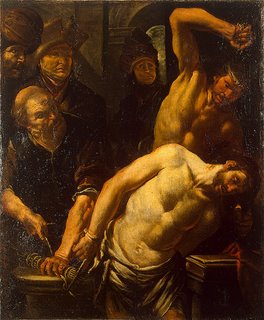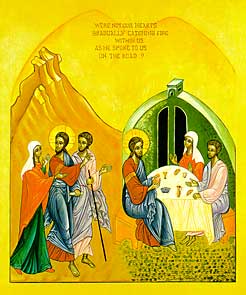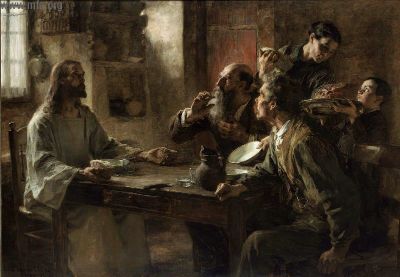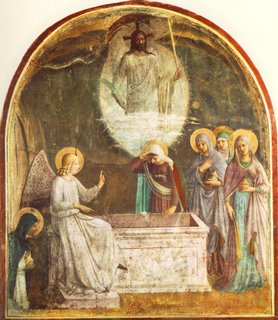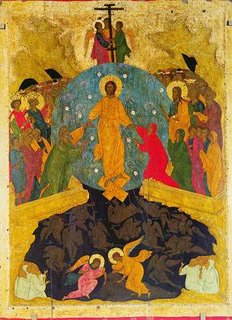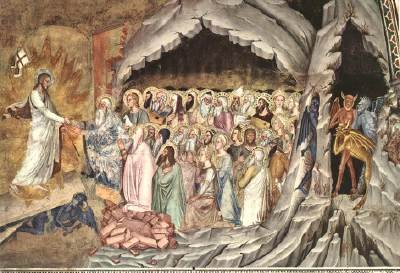when all blood had abandoned the Heart and all spirit the soul:
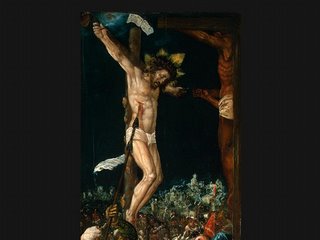 then it was only nothingness that bled, only the water of perfect exhaustion that still flowed when the lance bored in (visibly into the Heart of flesh, and invisibly into soul, spirit and God): in me God himself became exhausted. The Inexhaustible was exhausted. Life was lived out. Love was loved out.
then it was only nothingness that bled, only the water of perfect exhaustion that still flowed when the lance bored in (visibly into the Heart of flesh, and invisibly into soul, spirit and God): in me God himself became exhausted. The Inexhaustible was exhausted. Life was lived out. Love was loved out.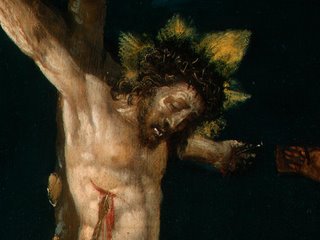
Life was lived out.
Love was loved out.
This was my victory. In the Cross was Easter.
 In death the grave of the world was burst open.
In death the grave of the world was burst open.
In the leap into the void was the ascension to heaven.
Now I fill the world, and at last every soul lives from my dying.
You do not bear the judgment, but the grace. … Your participation in the redemption (your status as co-redeemers, we might say) is but an analogy, an expression of my love. But it is real: I myself make it real and valid. I make up for your failure and bring it to plenitude. … Taste with me the futility of the redemption. It is from such stuff that the Father has always wrought his grace. There is a judgment; in the Father’s hand there is a balance. In the one scale there lies the heavy and oppressive futility of it all. In the other, a buoyant, mounting hope. And, as the first scale falls, the judgment is decided. Hope mounts up and my Kingdom triumphs; a soaring escape.
Let us look steadfastly to the blood of Christ, and see how precious that blood is to God, which, having been shed for our salvation, has set the grace of repentance before the whole world.
--Pope St Clement, First Epistle to the Corinthians
***Considering the event of today, you might want to watch/listen to/pray with "Divine Mercy and How This Effects Your Thinking," a program that features Fr. Benedict Groeschel and a good friend, Br. Michael Gaitley, MIC.***












